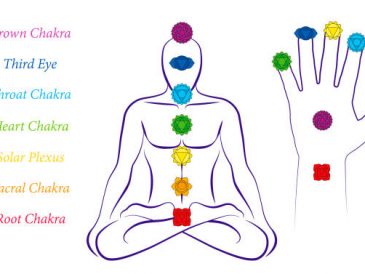In today’s fast-paced world, the prevalence of mental illness is on the rise, with millions of individuals worldwide grappling with conditions such as depression, anxiety, and stress-related disorders. While traditional treatments like medication and therapy play a crucial role in managing these conditions, there is growing interest in complementary approaches that promote holistic well-being. Among these, yoga has emerged as a popular practice renowned for its myriad physical, emotional, and mental health benefits. This article delves into the potential of yoga as a complementary therapy for treating mental illness.
Understanding Mental Illness:
Before delving into the potential benefits of yoga, it’s essential to understand the complexities of mental illness. Conditions such as depression and anxiety can significantly impact an individual’s quality of life, affecting their mood, cognition, and behavior. While medications and psychotherapy are commonly prescribed treatments, they may not be effective for everyone and can sometimes lead to side effects or dependency issues. Hence, there’s a growing interest in alternative and complementary therapies that offer additional avenues for managing mental health challenges.
Yoga: A Holistic Approach to Well-being:
Yoga, an ancient practice originating from India, encompasses a range of physical postures, breathing exercises, and meditation techniques designed to promote physical, mental, and spiritual well-being. While yoga’s physical benefits are well-documented, its effects on mental health have gained increasing recognition in recent years. Unlike conventional treatments that target specific symptoms, yoga takes a holistic approach, addressing the interconnectedness of the body, mind, and spirit.
The Potential of Yoga in Treating Mental Illness:
- Stress Reduction: One of the hallmark features of yoga is its ability to reduce stress levels. Through deep breathing exercises, mindfulness practices, and physical postures, yoga promotes relaxation and activates the body’s relaxation response, thereby lowering levels of stress hormones such as cortisol. By incorporating yoga into their routine, individuals with mental illness can effectively manage stress and cultivate a greater sense of calmness and inner peace.
- Mood Enhancement: Research suggests that regular yoga practice may have mood-enhancing effects, making it particularly beneficial for individuals struggling with depression and mood disorders. Yoga promotes the release of endorphins, the body’s natural feel-good chemicals, which can alleviate symptoms of sadness and improve overall mood. Additionally, certain yoga poses, such as backbends and inversions, are believed to stimulate the nervous system and uplift the spirits, offering a natural antidote to low mood.
- Anxiety Relief: Anxiety disorders are characterized by persistent feelings of worry, fear, and apprehension, which can significantly impair daily functioning. Yoga offers a variety of techniques, such as deep breathing and progressive muscle relaxation, that can help individuals manage anxiety symptoms more effectively. By fostering a mind-body connection and promoting present-moment awareness, yoga empowers individuals to navigate anxious thoughts and sensations with greater ease and resilience.
- Improved Self-awareness: Central to yoga practice is the cultivation of self-awareness, or mindfulness, which involves paying attention to one’s thoughts, feelings, and bodily sensations without judgment. For individuals with mental illness, developing self-awareness can be transformative, as it allows them to recognize negative thought patterns, emotional triggers, and habitual behaviors that contribute to their symptoms. By fostering greater self-understanding, yoga empowers individuals to make conscious choices that promote mental and emotional well-being.
- Enhanced Resilience: Building resilience is essential for coping with life’s challenges and bouncing back from adversity. Yoga fosters resilience by teaching individuals to embrace discomfort, cultivate patience, and develop inner strength. Through regular practice, individuals learn to navigate difficult emotions and situations with grace and resilience, thereby reducing the risk of relapse and promoting long-term recovery from mental illness.
Research Evidence Supporting Yoga’s Efficacy:
While anecdotal evidence abounds, scientific research supporting the efficacy of yoga in treating mental illness continues to grow. Numerous studies have documented the positive effects of yoga on various mental health outcomes, including depression, anxiety, post-traumatic stress disorder (PTSD), and schizophrenia. Meta-analyses combining the results of multiple studies have consistently demonstrated the beneficial effects of yoga on mood, stress levels, and overall psychological well-being.
For example, a meta-analysis published in the Journal of Clinical Psychiatry found that yoga significantly reduced symptoms of depression across a range of populations, including individuals with major depressive disorder and pregnant women at risk of depression. Similarly, a systematic review and meta-analysis published in JAMA Psychiatry concluded that yoga interventions were associated with significant reductions in symptoms of anxiety, underscoring its potential as an adjunctive treatment for anxiety disorders.
Yoga offers a multifaceted approach to promoting mental health and well-being, making it a valuable complementary therapy for individuals struggling with mental illness. By addressing the interconnectedness of the body, mind, and spirit, yoga equips individuals with practical tools for managing stress, enhancing mood, and cultivating resilience. While further research is needed to elucidate the mechanisms underlying yoga’s therapeutic effects, the existing evidence suggests that incorporating yoga into treatment plans can enhance outcomes and improve the overall quality of life for individuals with mental illness. As part of a holistic approach to mental health care, yoga holds tremendous promise in fostering healing and transformation at the deepest levels of the human experience.




